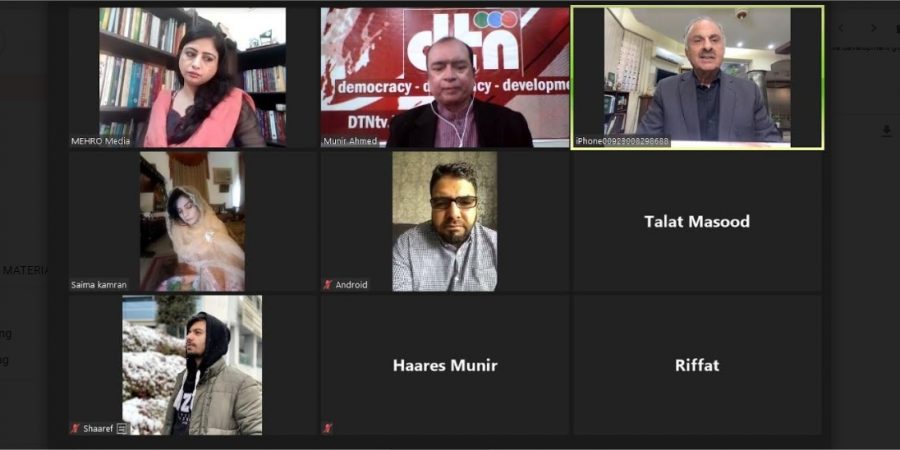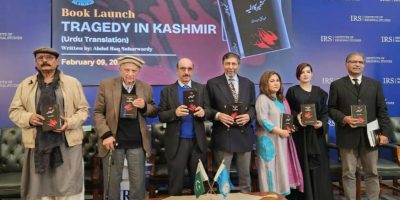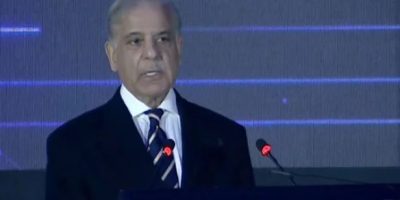Pakistan needs a more consistent and vigorous action plan on IOJK

DNA
Islamabad, AUG 4 – Defense and strategic experts and civil society representatives while speaking to a webinar on Kashmir situation pointed out lack of consistency and innovative approaches as the missing elements in our diplomatic efforts to mainstream and to support the Kashmir cause.
They also urged the need to have cultural diplomacy that we don’t believe in while nations have successfully used it to penetrate in multicultural societies.
The webinar was organized by the Development Communications Network (Devcom-Pakistan) in connection with the “Yaum-e-Istehsal” (August 5, 2019) being marked by the Pakistan government to highlight the Indian atrocities in the Indian Occupied Jammu and Kashmir (IOJK) after the India revoked their Constitutional Articles 370 and 35-A last year.
The speakers included defense and strategic analyst Lt General (Retd) Talat Masood, Senator Lt. General (Retd) Abdul Qayyum, Vice President of the Kashmir Movement Worldwide (UK) Ghaffar Shahid, senior journalist and former vice president National Press Club Dr. Sadia Kamal, web TV host and poet Syeda Saima Kamran and Shaaref Munir from the Özyeğin University, Istanbul (Turkey). Devcom-Pakistan Director Munir Ahmed hosted and conducted the webinar.
Lt General (Retd) Talat Masood said Pakistan has always been putting its best effort to mainstream the Kashmir cause but could not get desired results. The weaknesses in the methodology included integrated consistency, unconventional way of doing it, slumber diplomatic practices and weak political, economic and financial status of the country. Non-state actors, even some of the actual stakeholders were left out of the process of civil and parliamentary engagement. We could never use media and cultural diplomacy as the engaging tools for bilateral and multilateral diplomatic ties. On the other hand, India has a clear edge over us in terms of size of economy, bilateral relations, economic, cultural and diplomatic relations.
Senator Lt General (Retd) Abdul Qayyum said Prime Minister Imran Khan is a towering sports personality well respected across the globe. He could have projected the Kashmir cause very well by visiting his counterparts across the globe, but his preference has been indulging in conflicts with the opposition on pity issues. Still he has the chance to prove a leader at par excellence in engaging the world leaders to propagate the Kashmir issue and gather required support. Our foreign missions do not play their role in what is required for the national interest. Parliamentary committees are only advisory instruments; they only suggest the government to take certain steps but cannot force the government hierarchy. It’s their priority agenda. However, the establishment and army may push the government to take some necessary steps on the Kashmir issue. He urged media and civil society and Pakistani communities living in different parts of the world to keep pursuing the agenda for national interest.
Devcom-Pakistan Director Munir Ahmed said: They mentioned that unfortunately we have no time-bound and tasks-oriented action plan to achieve strategic objectives, enhance political image across the globe and to have meaningful and trust worthy diplomatic relations except one or two countries. Haphazard fire-fighting and domestic efforts would bring the desired results while Pakistan’s diplomatic missions have failed to gather required support on a variety of fronts for the country.
Ghaffar Shahid said the Kashmir Movement (UK) has played a significant role in registering the people of IOJK case in Britain, Europe, Canada and some parts of the US. A huge protest was organized in the UK when the Indian Prime Minister Narendra Modi arrived on a state visit. During the last elections in the UK, we only supported those candidates having Indian Occupied Kashmir agenda on their manifestos. The winners are keeping their promises and stand by the stance of the people of IOJK.
Dr Sadia Kamal said despite the government being aware of the important role of media but never taken on board for the Kashmir cause for international dissemination and propagation. However, she said the domestic media, both private and state-run, was playing its role in a very efficient manner.
Syeda Saima Kamran mentioned intellectuals and writers are said to be the backbone of the society but we have no place in the strategic interventions. Civil society in totality could play its role if taken on board. People to people contact brings more positive impact than of the governments.
Shaaref Munir said Pakistani students studying in universities globally could play their role if supported and facilitated by the embassies and counsel generals in the respective countries. He said he never saw Pakistani Consulate engaging with the local universities or international communities on the national strategic agenda or cultural engagement. We are open to collaborate with Pakistani missions in Turkey on any sort of engagement in Turkish universities.
Related News

IRS hosts launch of Urdu translation of tragedy in Kashmir
ISLAMABAD, FEB 9 /DNA/ – The Institute of Regional Studies (IRS), Islamabad, hosted the launchRead More

Pakistan to invest $1bn in artificial intelligence by 2030: PM Shehbaz
ISLAMABAD, FEB 9:Prime Minister Shehbaz Sharif on Monday announced that Pakistan will invest $1 billionRead More


Comments are Closed